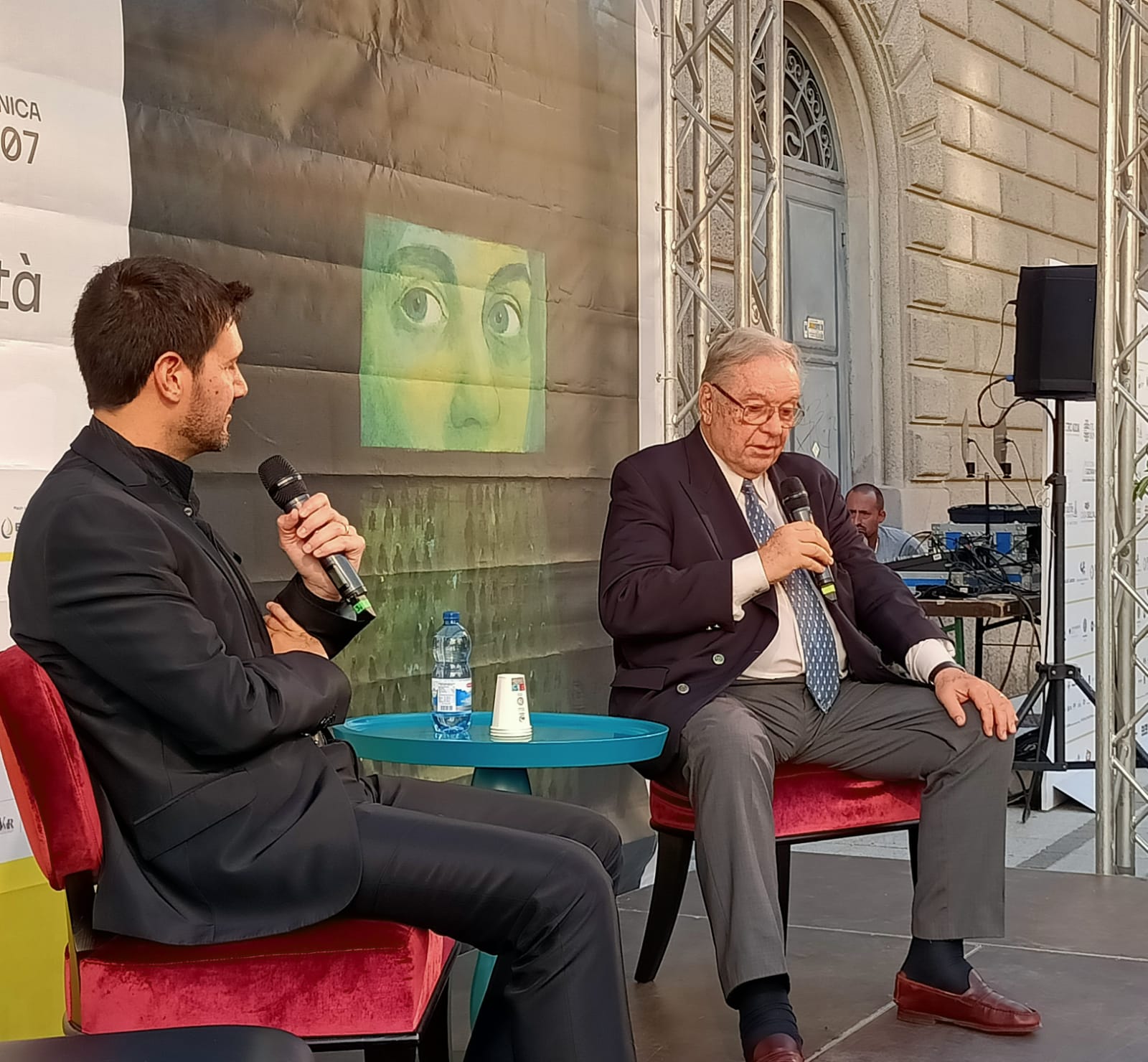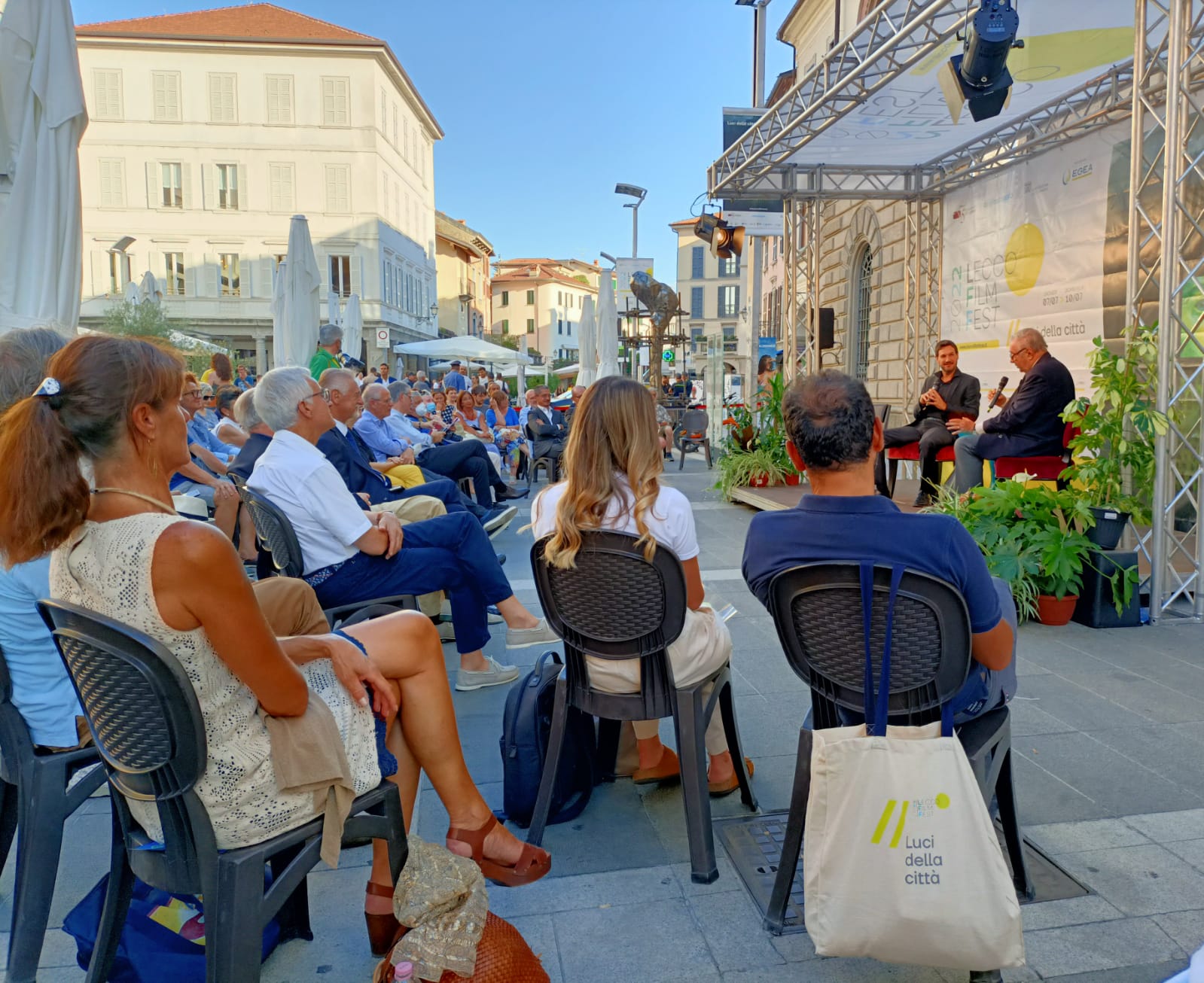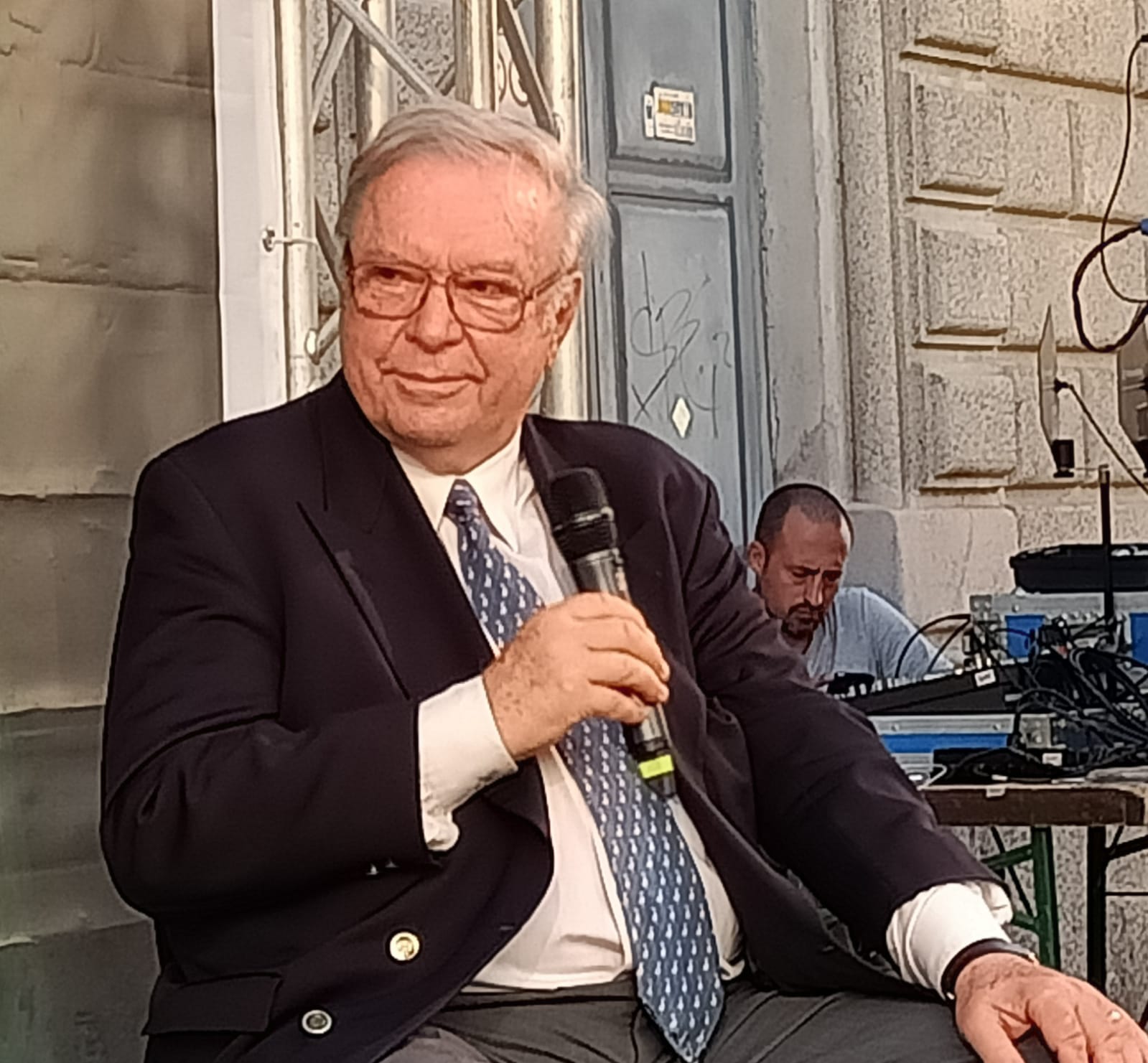Krzysztof Zanussi he is a master, a giant of cinema, but above all a free man. The Polish director was the protagonist of the meeting “Cinema, light, life” on Friday 8 July 2022 as part of the Lecco Film Fest. Interviewed by Gianluca Arnoneeditorial coordinator of Foundation of the Entertainment Organizationshowed all his generosity by retracing his career with anecdotes and reflections on the profound meaning of existence and making films.
Krzysztof Zanussi at the Lecco Film Fest
“As you can guess from my surname, I am of Italian origin. My family moved to Poland at the time of the Habsburg Empire to build railways – he said – My father had a very Mediterranean, volcanic temperament. I learned from him that any spontaneity during the years of the regime could end in arrest. Once some Russian engineers came to advise my father on the management of the construction site: he replied that they would not allow themselves, that the Italians built roads and buildings when they were still monkeys. It was enough not to see him for some time: they arrested him ”.
Thus Zanussi learned to measure words, without betraying the spirit of research and truth that characterized his artistic experience.
Arnone recalled how Zanussi, and after all his generation, the boys born in 1939 and during the Second World War, had to give up childhood. Zanussi himself graduated at the age of 15, “Many of us underwent this false acceleration – confirmed the director, but it took him a while to discover his vocation – I enrolled in Physics, a subject I loved very much, unfortunately not paid. I realized that I was a mediocre student and there is nothing worse. I quit and enrolled in philosophy. In Krakow, the only university where philosophy was such and not propaganda of the regime as in other cities “.
READ ALSO Governor Fontana at the Lecco Film Fest: “This event has united the territory”. Minister Bonetti and violence against women: “Words matter”
This is where Zanussi meets cinema
“I did a lot of things, like any bored student. Among these were some short films that were awarded. I thought that if they rewarded me maybe this was my vocation ”. In fact, at the Lodz Film Academy he was welcomed, after a very hard exam, as a very talented young man “and three years later they kicked me out, as a person with no hope of a future in the industry”, he confessed with a smile.
In reality, the reason for the “expulsion” is very “noble”: “I had made a trip to France where the Nouvelle Vague, which was not yet called that, was taking its first steps. I was fascinated by the novelty of the language and put it back on my way back to school. My professors mistook the choice of the room by hand for amateurism. They threw me out to set a good example ”.
In reality he also had some satisfaction: “I made a film in which the action was in a convent for over half an hour, not knowing how to judge it, given the subject, it was printed in two copies and sent to Moscow and West Germany, in two different competitions. So it was that in a week I received two awards, from Western Protestants and Eastern Orthodox Catholics ”.
But the director’s “license” – and it is precisely an administrative patent, as was used in that regime where form and substance coincided – comes with “The structure of the crystal” (1969)
“I wanted to tell the contrast between contemplative life and active life, the temptation of purity. I was interested and still am interested in using this language to tell something that shows little, ”she explained.
The mystery
Pressed by Arnone on how careful censorship was and how he managed to avoid it, Zanussi declared that “cinema for me is based on words, like theater, not on images. But the censors who have no passion for the regime they serve forget it and are content with having an explanation. Just changing a sentence without changing its meaning, as happened with a sentence from Lenin who, according to them, ridiculed the system, it was enough to change a few things and the film was not censored. “
Arnone stressed that Zanussi’s films are imbued with a spirituality that could not be frowned upon by the regime and asked how it was possible to make them. “I was protected from above! – the director joked – I actually struggled a lot, for example in “Spirale” we talk about death, but the message is Christian ”.
Arnone then pressed Zanussi precisely on the theme of spirituality, asserting that “he believes more in mystery than in faith”. “The metaphysical impulse arises from the encounter with the mystery. It is there that we understand that there is something that goes beyond physical reality ”the director commented.

The film about the pope
Zanussi then recalled the 1980s, the years of the turning point, the possibility of working abroad, as long as no risky statements were made. Some bitter notes emerged precisely in relation to the film about Pope Woytila ”From a distant country” (1981)
“It was a commissioned project, I was tempted not to do it because I couldn’t judge the protagonist’s choices, nor dramatize his life. It was a didactic film. But I did it because the alternative was for an American professional to take care of it who would have treated the subject with detachment, and this would not have been right. In some cases it cost me the label of “the director of the pope”, which ended up discrediting my works in the eyes of someone. It was a useful film, but not a beautiful one, even if I believe that – except in this case – beauty is an absolute value ”.
There was no shortage of funny episodes on the set: “The Swiss Guards were bewildered when we brought in the extras dressed as cardinals. In St. Peter’s, the actor who played Pius XII lost his false nose, the extras dressed as nuns took photographs inside the basilica, to the point that I took them back, but the ecclesiastical officer who was following the filming said to me: “Forget it, there is no need to shout with our sisters “”.
Serene but cutting the judgment on America
“We got to know American culture late, in the late 1950s, we were not bewitched by it like some Italian colleagues, Bertolucci for example, who knew it immediately after Fascism. European culture was more interesting to us. America is not for me: the consensus of a large audience is always sought, I want to serve a more select one “.

Idealism and solidarity after the war in Ukraine
Then surprisingly he took his place on stage Luigi Geninazzijournalist and writer sent to Il Sabato first and then l’Avvenire, an expert on Eastern countries and an old acquaintance of the director.
It fell to him to focus the guest’s attention on current events: Zanussi, who is polyglot and speaks six languages, is a profound connoisseur of the Russian language and culture, which is not at all obvious for a Pole and has known Vladimir Putin: impossible not to ask him what he thinks of the invasion of Ukraine.
“It’s true I’ve been sitting at dinner next to anointed ones, but only because he wanted to avoid sitting with American actors who would have pestered him with questions,” he said. “War is really on the doorstep. Until recently, I was hosting six Ukrainian families in my house. What is happening is terrible “.
But Zanussi wanted to leave the public a message of hope and when Geninazzi, speaking of the 80’s season, asked him what remains of that lived faith and civil courage, the director said “until six months ago I would have answered very little . But now that I have seen how we welcomed the Ukrainians, how the Poles spent themselves on strangers and in addition to neighbors with whom there was not always good blood, I say that that idealism and that solidarity have awakened ”.
Words that reached the hearts of the audience who greeted Zanussi with a real standing ovation.
Chiara Ratti – Photo Mario Stojanovic

